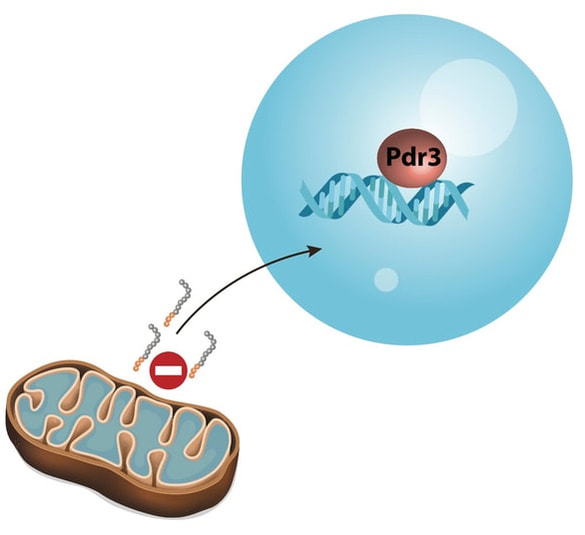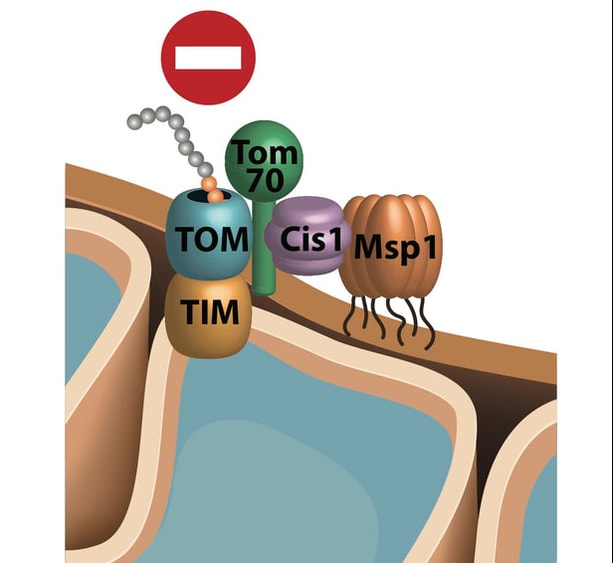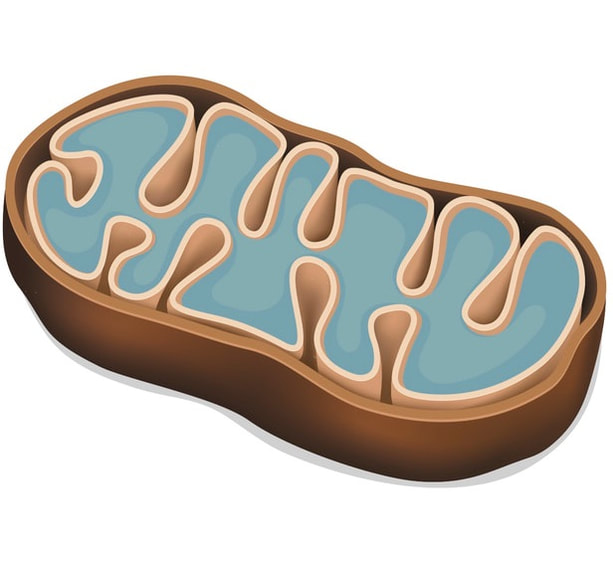Research |
|
We study how mitochondria homeostasis is maintained under stress
Mitochondria are organelles that serve as a hub for cellular signaling and the biogenesis of indispensable metabolites. We aim to understand how mitochondrial homeostasis is maintained under challenging physiological and disease conditions. Even though mitochondria contain their own genome, 99% of their proteome is encoded in the nucleus. Therefore, the constant import of proteins into the organelle is essential to eukaryotic cell function. Perturbations in this process cause multiple human disorders and are associated with aging and neurodegenerative diseases. We discovered a cellular response to protein import defects which we have termed the mitoCPR (mitochondrial compromised protein import response). The mitoCPR maintains mitochondrial functionality during import stress and prevents permanent damage to the mitochondrial DNA. Our lab employs cell biology, biochemical and genetic approaches to investigate how cells cope with defects in protein import. Using budding yeast and mammalian cells we aim to elucidate the molecular mechanisms that ensure mitochondrial health in the face of import defects. |
PROJECTS |
Mitochondria to nucleus signalingThe vast majority of mitochondrial genes are encoded by the nuclear genome. Therefore, communication between mitochondria and the nucleus is crucial for maintaining mitochondrial function and, consequently, for cell viability.
The transcription factor Pdr3 regulates the mitoCPR during import stress. We are investigating how a mitochondrial signal activates Pdr3 when protein import is inhibited. |
Mitochondrial protein quality controlDuring import stress un-imported proteins stall in the mitochondrial import channels. One function of the mitoCPR is to alleviate this stress by extracting stalled proteins from the channels. We aim to elucidate the mechanisms by which proteins are recognized and extracted from the membrane during import stress.
|
Mitochondrial import stress in mammalsImpaired mitochondrial protein import is a hallmark of several human disorders and neurodegenerative diseases. We are interested in understanding how mammalian cells cope with protein import defects.
|


